Katie is our exceptional Lead Designer who possesses an innate passion for designing websites and creating captivating themes and aesthetics. Her unparalleled dedication to producing innovative solutions that address client needs and reshape user perceptions is truly commendable. Katie finds immense gratification in crafting tangible designs that leave a lasting impact. Equipped with a comprehensive university degree in Computer Management and Web-Based Studies, Katie brings a wealth of knowledge to the forefront of her role at Loop. Her educational background empowers her to leverage cutting-edge technologies and industry best practices to deliver exceptional design solutions. Katie’s expertise shines through her ability to revamp websites, logos, and brands, allowing clients to showcase their business in a fresh and illuminating manner. Her keen eye for detail and creative flair breathe new life into digital assets, providing a platform for clients to shine in their respective industries. In addition to her professional pursuits, Katie’s passion for baking serves as a testament to her creative nature and attention to detail. This dedication extends beyond her design work and fuels her ability to approach each project with meticulousness and care. Her ability to understand clients’ unique requirements and translate them into captivating designs has garnered her praise and established her as a trusted design partner. Katie’s professionalism and unwavering enthusiasm make her an invaluable asset to our team. Her expertise in website design, coupled with her dedication to delivering tangible results, sets her apart as a Lead Designer. Clients can expect nothing short of exceptional designs that elevate their brand, captivate their audience, and drive success.
Posted on 29/03/2023 by Katie Manning
A Guide to the Most Popular Types of Websites
As the internet continues to shape our lives, businesses and organisations of all sizes are racing to establish and build an online presence. One of the fundamental aspects of building a successful online presence is understanding the different types of web designs available and how they can best serve your business’s objectives.
From eCommerce websites to personal portfolio sites, and online forums to educational websites, the options are seemingly endless. Each type of website has its own unique purpose, features, and benefits, and it’s important to understand the strengths and limitations of each when developing your online marketing strategy.
In this blog, we’ll explore the 10 different types of websites that businesses most commonly use, including their specific purposes, benefits, and potential drawbacks. Whether you’re looking to launch a new website or improve an existing one, understanding the different types of websites is a critical step in achieving your business goals. So, let’s dive in!
10 Most Popular Types of Websites
- eCommerce Websites
- Brochure Websites
- Event Websites
- Blog Websites
- Non-Profit Websites
- Personal & Portfolio Websites
- User Portal Websites
- Educational Websites
- Database & Directory Websites
- Online Forum Websites
1. eCommerce Websites
An eCommerce website is an online platform designed to facilitate commercial transactions between businesses and consumers. These websites enable businesses to sell their products and services directly to customers, without the need for a physical store. Common features include product galleries, product listings, checkouts and account personalisation.
There’re lots of benefits of eCommerce websites. They provide businesses with a wider customer reach, reduced overhead costs, and the ability to operate 24/7. They also enable businesses to personalise the shopping experience for customers by recommending products based on their purchase history and browsing behaviour.
In addition to this, eCommerce websites provide valuable data insights to businesses, such as customer preferences, purchasing behaviours, and product performance. These insights can help businesses improve their products and services, as well as inform their marketing strategies.
However, there are also some potential drawbacks to consider. Setting up and maintaining an eCommerce website can be a drain on your internal resources, particularly if your online store frequently changes. There are also security concerns related to handling customers’ sensitive financial and personal information online.
Despite these challenges, eCommerce websites remain a popular choice for businesses of all sizes, from small startups to large multinational corporations. In fact, a recent study projected that eCommerce sales will hit $8.1 trillion by 2026. You can check out one of our eCommerce builds below:
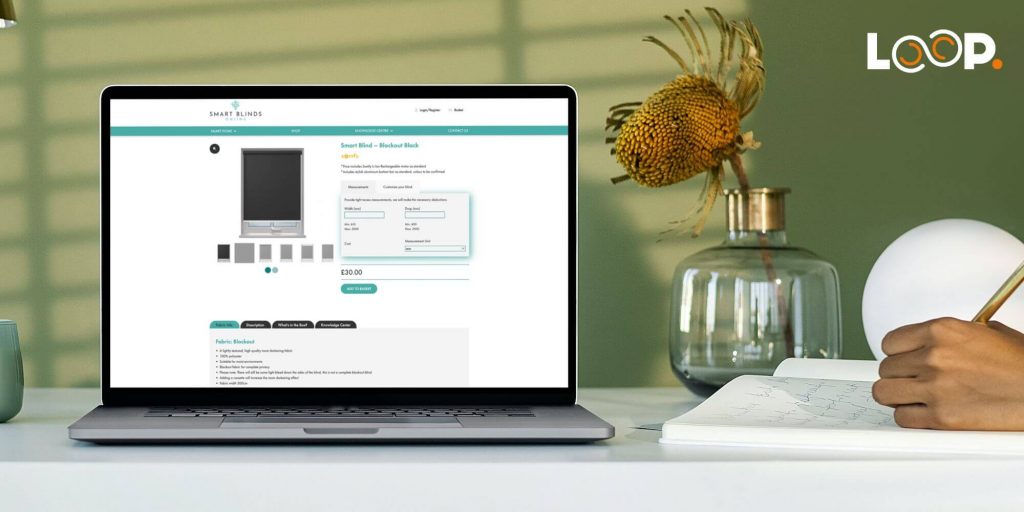
2. Brochure Websites
A brochure website is a type of website that is designed to provide basic information about a business, organisation, or individual. Think of it as an online version of a traditional printed brochure or leaflet.
Brochure websites typically include information such as the business’s purpose, products or services offered, contact information, and possibly some images or videos. They are often used by small businesses, startups, or individuals who want to establish an online presence but don’t need the full functionality of a more complex website.
One of the primary benefits of a brochure website is its simplicity. They are easy to set up and maintain. They can also be a cost-effective option for businesses on a tight budget, as they are often much smaller in scale and don’t require expensive eCommerce or database functionality.
However, one of the downsides of brochure websites is that they are often limited in terms of functionality and customisation options. They may not be suitable for businesses that want to utilise more advanced features that can be used to captivate the attention of their audiences. Since they are primarily informational in nature and often smaller, they often pose a bigger challenge when it comes to optimising for search engines as there is less content to work with.
Despite this, brochure websites have been and will continue to be a popular choice for small businesses across a variety of unique sectors and markets. We’ve included one of our brochure website builds below:
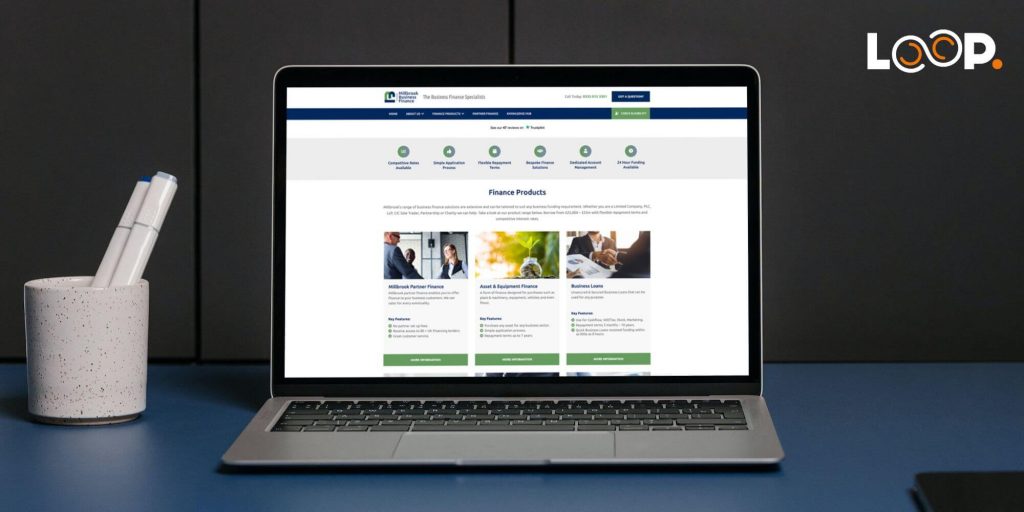
3. Event Websites
Event websites are designed to promote, provide information and enable admission purchases for events, such as exhibitions, performances, festivals, and other types of gatherings. These websites typically feature event details, such as dates, times, location, and ticket information, as well as photos, videos, and other content that helps promote the event and generate interest.
One of the key benefits of event websites is that they provide a central hub for event information, making it easy for attendees to access all the relevant details in one place. Event websites can also be used to sell tickets, register attendees, and provide updates about the event, such as schedule changes or special announcements.
In addition, event websites can be used to build buzz and excitement around the event, by featuring teaser content, behind-the-scenes glimpses, and other engaging content that generates interest and anticipation.
However, there are also some potential challenges to consider. For large, high-profile events, websites can quickly become overwhelmed by influxes of traffic which can result in technical glitches or other issues that can impact the user experience and damage the event’s reputation.
With that said, around half of ‘event-goers’ will turn straight to search to find out more about an event after they have first heard about it. This demonstrates that event websites are an integral tool for event organisers and businesses that want to promote their events online.
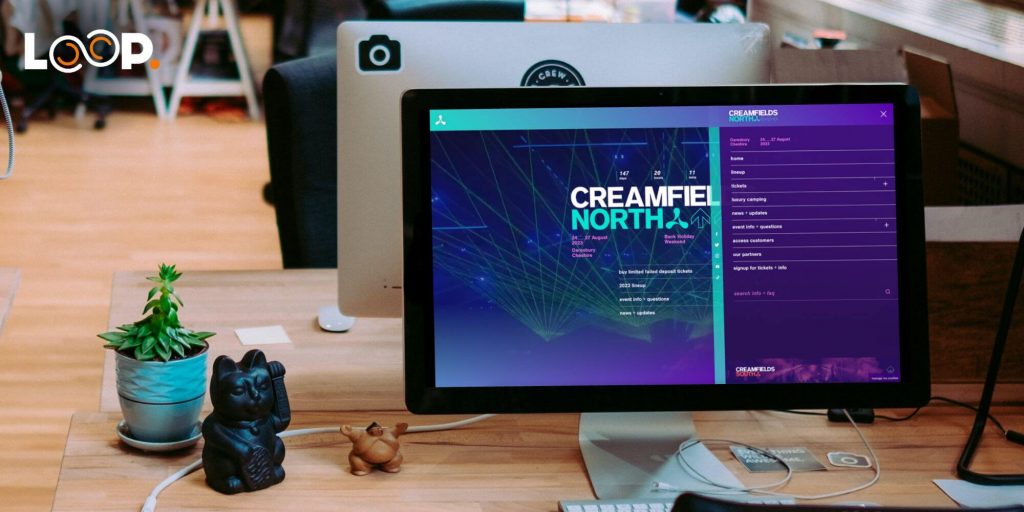
If you need support in designing or building a new website for your brand, look no further. Our web design agency can help you discover the best solution that not only meets but exceeds your expectations. Explore our variety of web design services today.

4. Blog Websites
Blog websites are online platforms that feature regular, often informal, written content on a particular topic or range of topics. These can be personal blogs, corporate blogs, or media blogs that cover news and current events. Bloggers can share their opinions, experiences, and knowledge on the topic they’re passionate about with a wider audience.
Whilst many websites include a blog, blog websites tend to focus exclusively on the written blog content. These sites enable bloggers to establish themselves as experts in their field, build their personal brand, and connect with like-minded individuals. They also provide a platform for building a loyal audience and generating leads or sales for businesses.
Blog websites remain a popular choice for businesses and individuals looking to establish their online presence and share their ideas with the world. It’s so popular that a recent sweep found that there are over 600 million active blogs in the world today.
Blogs provide businesses with the opportunity to create high-quality content that attracts website visitors and can help increase their search engine rankings. In addition to attracting visitors, blogs help convert them into leads too, with blog content generating 67% more leads than sites without a blog.
However, there are also potential drawbacks to consider. Creating and maintaining a successful blog requires a significant time investment, and it can be challenging to consistently produce high-quality content that engages readers.

5. Non-Profit Websites
Non-profit websites are online platforms designed to promote the mission and goals of non-profit organisations. These websites often feature information about the group’s cause, history, and impact, as well as details about how individuals can donate or get involved.
The benefits of non-profit websites are significant. They enable non-profits to raise awareness about their cause, generate support from potential donors, and connect with volunteers who are passionate about their mission. Non-profit websites can also be used to collect donations and provide regular updates about the organisation’s activities and impact.
Non-profit websites are an important tool for raising awareness and support for important causes. A recent survey found that 94% of non-profits accept online donations via their website. By leveraging the power of effective web design, non-profit organisations can increase their visibility, raise funds, and make a positive impact in their communities and beyond.
However, there are also potential challenges to consider. Creating and maintaining a successful non-profit website can be time-consuming and costly, particularly for smaller organisations with limited resources. Additionally, there is the risk of online scams and fraudulent websites that can damage the reputation of legitimate non-profits and impact their ability to raise funds. Something to bear in mind! You can see one of our examples below:
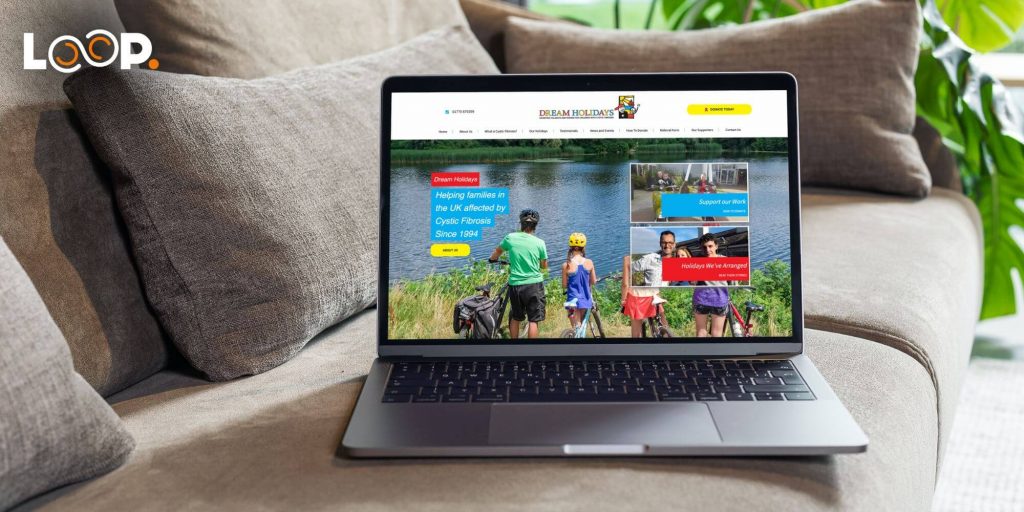
6. Personal & Portfolio Websites
Personal and portfolio websites are online platforms designed to showcase an individual’s skills, achievements, and experiences. These websites often feature a collection of works, projects, or creative endeavours, such as photography, writing, or design, that demonstrate the talent and expertise of the individual.
Portfolio websites enable individuals to showcase their work whilst building a personal brand. 86% of human resource managers review their top three candidate’s online portfolios, meaning these sites can be beneficial for securing new job opportunities or freelance work. Additionally, they can be a great way to connect with like-minded individuals and build their authority in their industry.
Creating and maintaining a successful personal or portfolio website can be time-consuming and requires a significant investment of time and effort. Additionally, there is the risk of online plagiarism and copyright infringement.
But in spite of this, personal and portfolio websites remain an important tool for individuals looking to establish their online presence and showcase their work. We’ve included one of our own examples below:
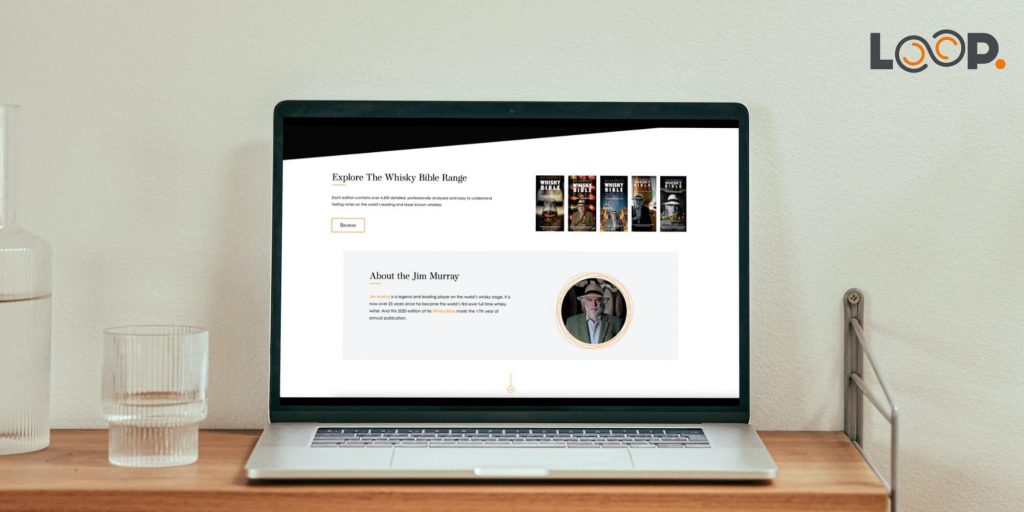
7. User Portal Websites
User portal websites are niche online platforms that provide users with access to personalised content and tools, such as user profiles, messaging systems, and content management systems. These websites are used by businesses worldwide, from educational institutions to healthcare providers. These sites provide secure access to information and services for their customers or members.
Online portals enable organisations to provide personalised and secure access to important information and tools. For example, a university might use a user portal to provide their students with access to their personal records, services and educational resources.
There are also potential drawbacks to consider. Developing and maintaining a user portal website can be complex and expensive, particularly for large organisations that handle significant amounts of data. User portal websites are often a prime target for security breaches and other forms of cyber attacks, which can compromise sensitive user information and damage the organisation’s reputation.

8. Educational Websites
Educational websites are online platforms that provide access to educational content and resources, such as courses, tutorials, and digital exams. These websites are often used by educational institutions, businesses, and individuals to provide access to learning opportunities and professional development resources.
They provide access to a wide range of educational content and resources, which are usually customised to meet the needs of individual learners. These websites can be used to provide flexible and accessible learning opportunities, something we’ve seen a huge spike with since the Covid-19 pandemic.
Developing and maintaining an educational website can be a challenge, particularly for organisations that require extensive customisation. Additionally, there is the risk of low engagement and completion rates among learners, which can impact the effectiveness of the educational website.
However, educational websites remain an important tool for providing access to learning opportunities and professional development resources.
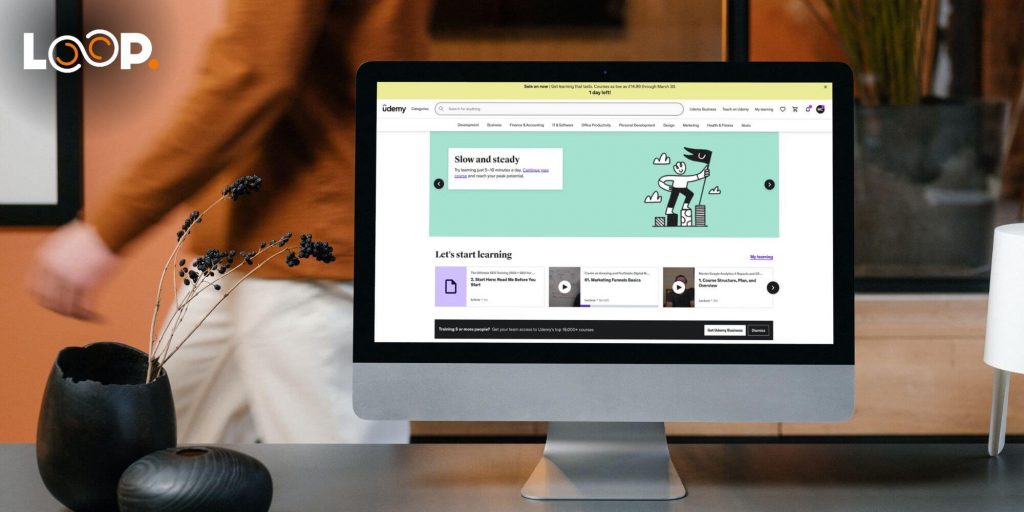
9. Database & Directory Websites
Database and directory websites are online platforms that provide access to organised collections of information, such as business listings, product catalogues, or scientific research databases. These websites are often used by businesses, researchers, and consumers to access and analyse large volumes of data in a structured and user-friendly way.
These digital databases provide easy access to a large amount of information, which can be searched and filtered to suit the user’s needs. Databases and directory websites can be used to support a wide range of applications, such as market research, product development, or scientific inquiry.
As you can imagine, building a database can be complex, particularly for large or highly specialised databases. Aside from the build, there is also a risk of inaccurate or outdated information which can compromise the usefulness and credibility of the directory.
If maintained properly, databases and directories remain valuable tools for accessing and analysing large volumes of information.
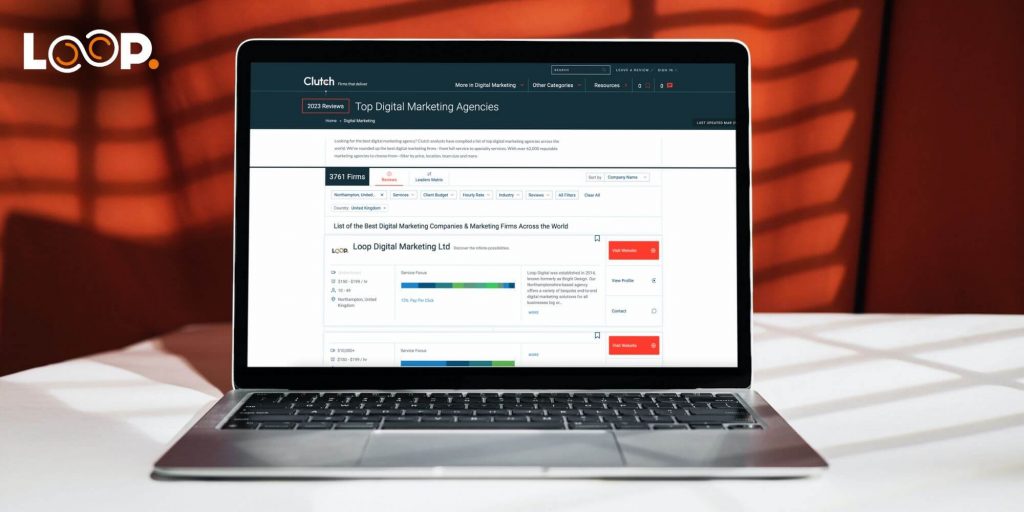
10. Online Forum Websites
Online forum websites are online platforms that provide a space for users to discuss and exchange information on specific topics or interests. Forums provide a platform for users to connect with one another, share knowledge and ideas, and build relationships based on common interests. These websites can be used to promote collaboration and cooperation, as users can work together to solve problems and share resources.
In addition, online forums can be used to support a wide range of applications, such as customer support, product development, or political activism.
However, there are also potential challenges to consider. Online forums can be vulnerable to spam, trolling, or other forms of inappropriate behaviour, which can compromise the quality of the discussion and discourage users from participating. Due to this, forums often require a significant investment of time and resources to ‘police’ and moderate.
Aside from the potential for trolling, online forum websites remain an important tool for promoting discussion and exchange of information on specific topics or interests.
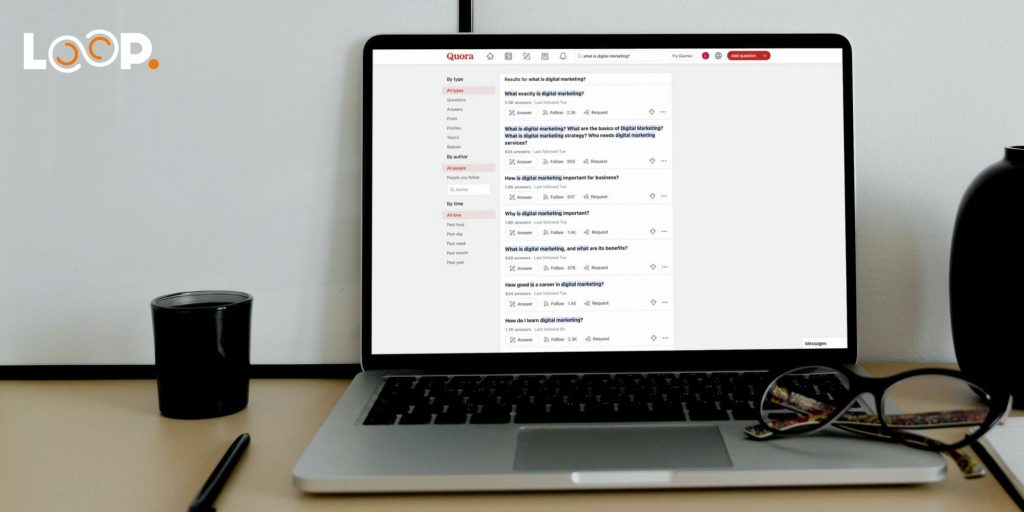
Loop Digital Web Design Agency
At Loop Digital, we pride ourselves on providing bespoke and affordable web design services to businesses across the UK. Our web design and development team are well-equipped to combat challenges, big or small. For more information about how we can meet your requirements and transform your vision into reality, explore our web design services or speak to one of our experts.
Looking for your next opportunity?
Digital marketing careers
We’re always on the lookout for talented individuals to join our ever growing team. If you think you’d be a great match for Loop Digital, we’d love to hear from you.

Stay in the loop... subscribe to our newsletter for all the latest industry news
"*" indicates required fields






